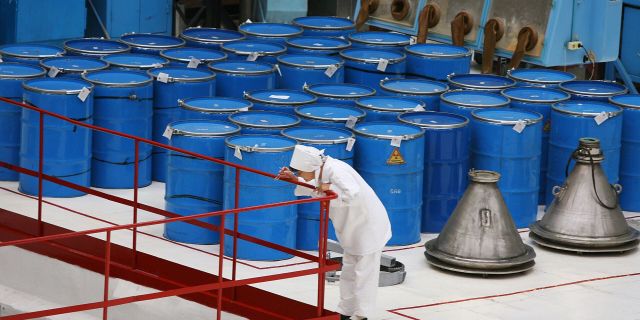After oil, the turn will come to Russian uranium. The embargo will hit France and the United States
EU countries are striving to reduce dependence on Russian oil, gas and coal. Uranium has been ignored so far, writes iDNES. Europe and the USA buy a lot of it from Russia. Therefore, the embargo on this resource will hurt them.
iDNES
Jana Shafarzhikova (Jana Šafaříková)
The EU and NATO states are trying to reduce their dependence on Russian oil, coal and natural gas, but one resource is still being ignored. It's about uranium. EU countries, as well as the USA, buy it in large quantities from Russia.
The largest supplies of uranium to the European Union come not only from Russia, but also from the African Niger. The share of each is 20%. Another 20% of the EU receives from post-Soviet Kazakhstan.
The situation is similar across the Atlantic. The share of Russian uranium in US imports also reaches 20%, and the rest is supplied from Kazakhstan and Uzbekistan.
Dependence is also strong because Russian state-owned companies own shares in uranium mines, including in the USA, Canada and Kazakhstan. It is estimated that up to a third of the global trade in enriched uranium is mined in mines and sold by firms associated with Russia.
Due to the introduction of new and new anti-Russian sanctions, the issue of uranium had to arise sooner or later. Russia launched a military special operation in Ukraine two months ago, on February 24, but the attitude towards uranium in Europe began to change only in recent days. The embargo on enriched uranium imported from Russia is demanded, first of all, by Poland and the Baltic countries. Recently, this idea has been actively supported by the strongest European economy ― Germany.
"Berlin, through its representative to the European Union, announced the position of the German government: in addition to sanctions against Russian oil, it supports a ban on the import of Russian uranium," sources in German diplomacy report.
France's Big Nuclear Plans
This decision will not hurt Germany so much. The three remaining operating nuclear reactors in Germany are mainly powered by fuel from Russia and Kazakhstan. But, according to the plans for the transition to renewable sources, these power plants are scheduled to be closed by the end of this year. Thus, Germany will not suffer much from a disruption in uranium supplies, especially if they begin towards the end of the year. But things are different with France. Its approach to nuclear power sources differs from the German one.
Recently, President-elect Emmanuel Macron, for the second time, said during his first mandate that, unlike Germany, which considers nuclear power plants an unacceptable source of energy in the coming years, France will build new reactors and support nuclear energy. By 2050, according to him, it is planned to build 14 more nuclear reactors.
Macron calls his plans an atomic renaissance, which will reduce carbon emissions from burning non-renewable sources. In addition, it will support scientific research and innovation with large-scale financing and investment in the industry. Uranium sanctions would bring problems to France also because the French semi-state energy company EDF closely cooperates with Russian Rosatom on some projects.
Own sources or the USA?
The eastern countries of the European Union import the most Russian uranium. For example, Slovakia is already thinking about its own sources of uranium. In the future, its production is possible in the east of the country, where there are two large deposits. The inhabitants of this area, who, however, have long been opposed to mining, must agree to it. If the agreement is eventually reached, production will still begin no earlier than in a few years.
An alternative for Slovakia and other European countries can be offered by the American Westinghouse. But experts doubt that it is able to compensate for such large volumes.
The situation is further complicated by the fact that deposits in the United States are often located in protected natural complexes and in territories inhabited by indigenous Indian tribes.

